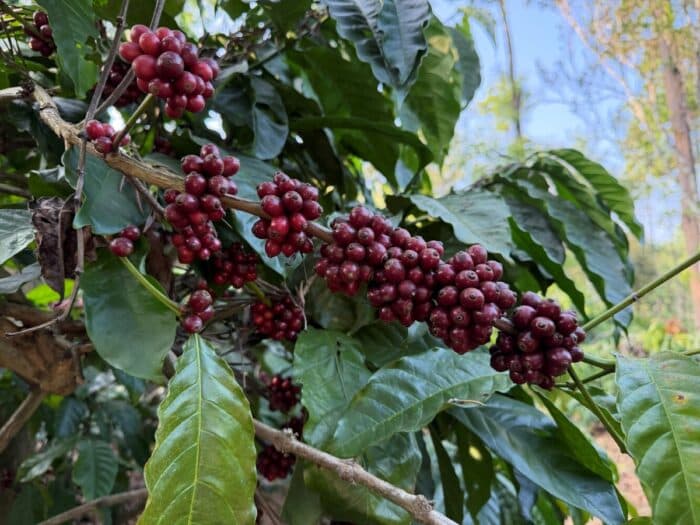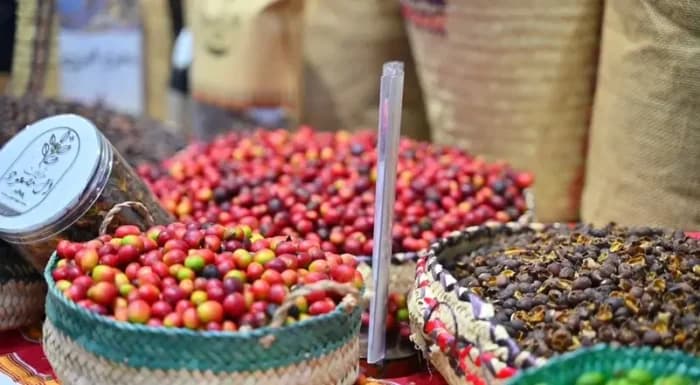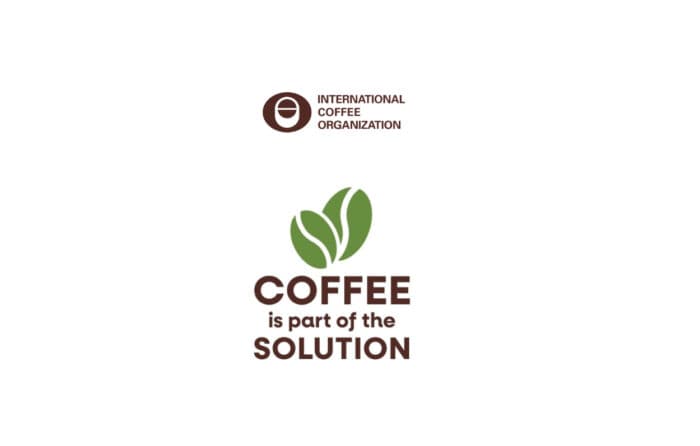
An Industry Perspective from Ethiopia By Gizat Worku Kebede, General Manager of the Ethiopian Coffee Exporters Association. Global coffee production is increasing; its price, meanwhile, is decreasing. According to the new global coffee production forecast released on February 25, 2026, the world is set to produce a volume it has never seen before. Rabobank forecasts
Read More
Addis Ababa – Qahwa World In the Jimma Zone of Oromia, a major tea development initiative has been launched under the leadership of Dr. Meles Mekonnen and Dr. Adonya Debela, with participation from senior government officials, aiming to enhance national agricultural productivity. Prime Minister Dr. Abiy Ahmed highlighted that this initiative represents a strategic effort

By Dr. Steffen Schwarz How a shade-grown origin once hidden behind state control and instant exports is being rediscovered through climate pressure, stronger roasting capacity, and a fast-maturing café culture. India has long been one of the world’s major coffee producers — yet for decades, it remained largely invisible in the global specialty conversation. The

Dubai – Qahwa World Saudi Arabia’s Ministry of Environment, Water and Agriculture has announced that the Kingdom is home to more than 1.3 million productive coffee trees, with annual output exceeding 870 tons of green coffee. The trees are concentrated across the southern and southwestern regions of the country. According to the ministry’s data, coffee

DUBAI – Qahwa World × Buna Kurs The World’s 100 Best Coffee Shops has entered into a strategic agreement with the Specialty Coffee Association (SCA) to present its continental Top 100 rankings during upcoming World of Coffee exhibitions starting in 2026. Under the agreement, the continental rankings will be officially unveiled as part of the

London – QAHWA WORLD The International Coffee Organization (ICO) has launched its 2026 global communications campaign under the theme “Coffee is Part of the Solution,” highlighting the sector’s role in addressing major global challenges. Coffee provides income for approximately 12.5 million farming families worldwide and plays a central role in socio-economic development across producing regions

By: Soumya Gayatri On a winter morning in Riyadh’s historic AlSafat Square, Qaysariat Al-Kitab — a traditional book cafe adorned with Najdi architectural motifs — offers more than coffee. It provides a setting where heritage, literature and conversation intersect, reflecting a broader transformation underway in Saudi Arabia’s coffee landscape. Coffee in the kingdom has long

DUBAI – QAHWA WORLD Coffee prices settled mixed on Wednesday, consolidating recent losses after a period of significant pressure. May Arabica coffee (KCK26) closed slightly lower at -0.65 (-0.23%), while May Robusta coffee (RMK26) rose +63 (+1.73%). Arabica and robusta prices had tumbled earlier this month, with arabica reaching a 15-month low on Tuesday and

Washington, D.C. – QAHWA WORLD The Coffee Quality Institute (CQI) has announced the launch of its new CQI Insider Membership Program, designed for coffee professionals seeking close connections with the people, knowledge, and opportunities shaping the future of coffee quality worldwide. Annual Membership Details Fee: USD $100 per year You may like: Michael Sheridan in













Tradition Anchors Growth as Pods, Specialty and RTD Gain Ground DUBAI – QAHWA WORLD Italy’s coffee sector is projected to expand steadily through 2031, supported by strong domestic consumption, product...

DUBAI – QAHWA January 2026 was not merely the start of a new calendar year for the International Coffee Organization (ICO); it served as a critical testing ground for the...

DUBAI – QAHWA WORLD The saying about fruit and doctors might need an update: your daily cup of coffee could also play a role in keeping your mind active as...

DUBAI – QAHWA WORLD For many, drinking coffee after a heavy meal is not just a social ritual, but a functional tool for the body. According to a report by...